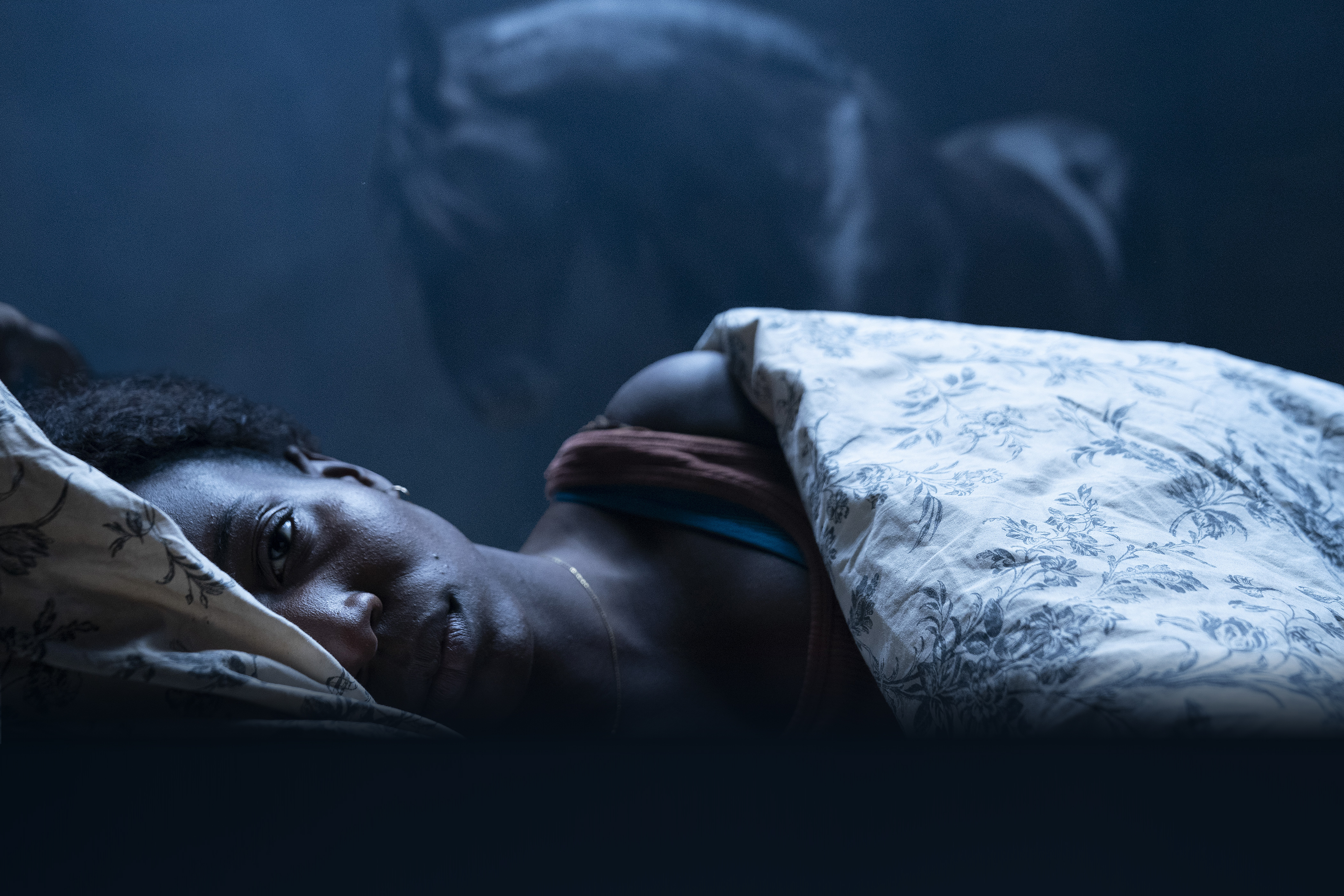What to Watch Verdict
'Kindred' is a blend of generational tension and bodily hijacking, which benefits from its poignant representations of an otherwise recognizable gaslighting thriller.
Pros
- +
🐰 Tamara Lawrance unravels.
- +
🐰 Fiona Shaw warps sincerity.
- +
🐰 Jack Lowden slips into "good guy" skin.
Cons
- -
🐰 Lacks urgency at times.
- -
🐰 Gets lost in its slower pace.
If pregnancy blesses a horror movie character, chances are someone, something, wants to snatch said unborn fetus. Practicing cultists, jealous homemakers, mourning mothers-in-law, the list continues. Joe Marcantonio's feature debut Kindred is an atmospherically somber kidnapping under the guise of hospitable caretakers, rooted in gaslighting practices. Horror derives from a woman robbed of choice, of freedoms; her body, no control. It's not particularly uncharted in terms of expecting genre tales focused on baby-bumps. Still, Marcantonio proves confident and aesthetically inclined by elevating the details of this maternal struggle between bloodline tethers.
Tamara Lawrance stars as Charlotte, a grieving mother-to-be who has just buried the would-be father of her unborn child. Charlotte is advised to stay with her late lover's family, the cane-leaning Margaret (Fiona Shaw) and stepson Thomas (Jack Lowden). Charlotte desires to flee the countryside estate for a fresh start in Australia, but Margaret and Thomas seem increasingly keen on keeping the only remaining piece of Ben (Edward Holcroft) under their roof. As Charlotte's paranoia increases, Margaret and Thomas only become more outwardly helpful. A perfect ruse? Or is Charlotte as unwell as she's been convinced?
Marcantonio's village backdrop sets the stage for a grave uterine robbery. It's the kind of secluded community where wealth, heritage, and commonality can override an outsider's cries for help. From the white-haired local physician under Margaret's thumb to the limited appearances of supporting characters (given the distance between properties), Charlotte is isolated. Imagine the town from Hot Fuzz, but with even less public attention. We are trapped within the lived-in, antique interior of Margaret's once-lavish estate, meant to showcase the watermarks and chipped paint of deterioration as a representation of her clinging to dying pasts. Worse off, Margaret's allowed to do so and empowered further.
The more powerful messages of Kindred exist between the two nice white folks positioned as heroes to the public versus the one colored character who's an outsider by nature, by force. Margaret and Thomas smile their way to getting what they want, while Charlotte is practically institutionalized for her very-apparent fears. Hence the "timely" aspect of Marcantonio and co-writer Jason McColgan's lockdown. Margaret weaponizes her frail, senior physicality and grandmotherly charms the same way Thomas prepares meals and chauffeurs Charlotte like a hired butler. Their insidiousness is never questioned by anyone beyond Charlotte, the only person who doesn't mirror everyone's appearances in the room she's occupying. As Charlotte's dizzy spells increase, as fearmongers point towards Charlotte's mother (who suffered from severe postpartum depression), Marcantonio makes it plainly, eyes-held-open clear how women with-child still might not be permitted to speak for themselves. Society does that for them, based on motivations and intentions without the carrier in mind.
Levels of horror benefit the subtle and quieter narratives. Charlotte staring at steaming tea, convinced it's laced with drugs. Thomas acting at his utmost chivalrous while Charlotte has no recollection of sleepwalking, or asking him to lay in bed, or other nightly blackouts. Margaret sways doctors, co-workers, and anyone Charlotte might contact without vetting, simply by muttering a "good heavens" and playing innocent. It's a substantial role from Tamara Lawrance as she not only must project the troubles faced by women who act independently from others' wishes, but Lawrance finds herself juxtaposing shrill screams of trapped angst against fall-in-line mannerisms in montages where Charlotte's daily routine is exposed. How many times can you be told you're going mad without believing so yourself? Never possible without Fiona Shaw and Jack Lowden displaying the disquieting aristocratic behaviors that substitute their villainy with sophistication.
In its familiarity, Kindred feels indebted to everything from Rosemary's Baby to Into The Dark's Delivered. You've seen this before, but the implications are dire. Added signatures, like the intercut usage of animal symbols, be them taxidermied dioramas or winged, feathered creatures, connect with suggestive artistry. Joe Marcantonio follows existing structures to say the right things, regarding more human fears than underworld intrusions. A less frantic pace, more methodical and invasive, but still frightening even without the aid of jump scares or haunted house models.
Kindred will be available to rent on VOD November 6th, 2020.
The latest updates, reviews and unmissable series to watch and more!
Matt Donato is a Rotten Tomatoes approved film critic who stays up too late typing words for What To Watch, IGN, Paste, Bloody Disgusting, Fangoria and countless other publications. He is a member of Critics Choice and co-hosts a weekly livestream with Perri Nemiroff called the Merri Hour. You probably shouldn't feed him after midnight, just to be safe.


